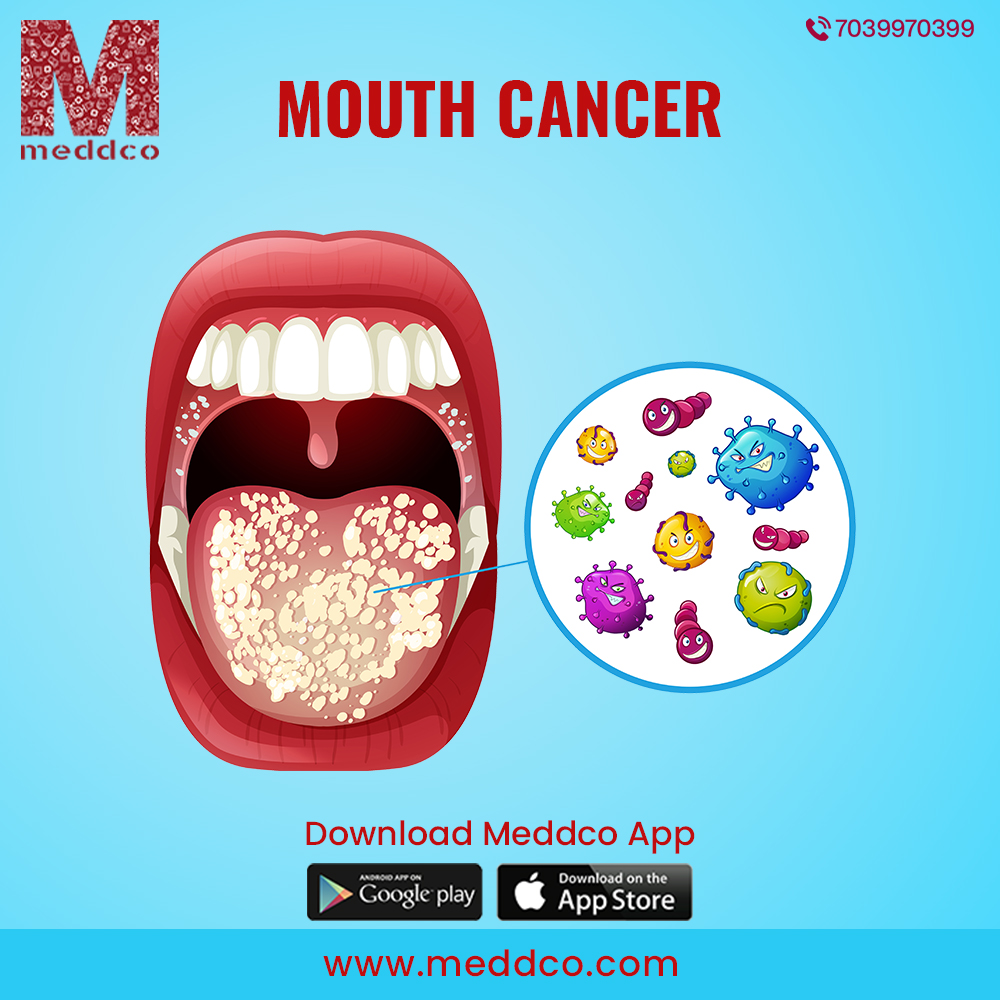

: Admin : 2021-11-10
Mouth cancer, also known as oral cancer or cancer of the oral cavity, is a kind of cancer that begins in the mouth. Mouth cancer begins in the cells that line the mouth. Damaged cells may then proliferate uncontrolled, resulting in the formation of a tumour.
Alcohol and tobacco are the two primary risk factors for oral cancer, and the combined impact of drinking and smoking is significantly larger. The chance of developing mouth cancer grows with age, and males are three times more likely than women to acquire the condition.
Mouth cancer may be cured if detected early, so if you notice any abnormalities in your mouth, consult your dentist or doctor right once.
Mouth Cancer Symptoms
The lips, tongue, and floor of the mouth are the most prevalent locations for mouth cancer, but it may also develop in the gums, inner lining of the cheeks, the roof of the mouth, hard and soft palate, tonsils, and salivary glands.
Mouth cancer symptoms may include:
These symptoms do not necessarily indicate that you have oral cancer, but if you feel or observe any of them, you should see your dentist or doctor.
Mouth cancer risk factors
Tobacco and alcohol cause more than 75 per cent of mouth cancers by exposing your mouth to cancer-causing chemicals (carcinogens). If you smoke and drink, your chances of getting mouth cancer are much greater. Alcohol may allow other carcinogens, such as smoke, to enter and harm cells.
Cigarettes, cigars, pipes, and chewing tobacco are all forms of tobacco consumption. If you smoke or chew tobacco, you are twice as likely as a nonsmoker to get oral cancer. Chewing or smoking areca nut, betel quid, pan, or gutka raises your risk as well.
The location of cancer in the mouth is determined by how the tobacco product is used. For example, if you chew tobacco on your left cheek, you may be predisposed to cancer of that cheek.
Alcohol drinkers are six times more likely than non-drinkers to get mouth cancer. The higher the danger, the more you drink.
Diagnosis of oral cancer
How does mouth cancer spread?
Squamous cells are flat, solid cells that coat the membranes of the mouth, nose, and throat. The majority of oral malignancies begin in these surface cells. Squamous cell carcinoma may spread to deeper tissue, including muscle and bone, as well as the throat and lymph glands in the neck if left untreated. Mouth cancer may spread to other areas of the body if it enters the bloodstream or lymphatic system, so it's critical to catch it early and treat it.
Mouth cancer treatment
Treatment options vary depending on the size, nature, and location of cancer, as well as if it has spread, but may include:
If the tumour is small, it is surgically removed. If the tumour spreads to the lymph nodes on the affected side, these may be removed as well.
Small, precise doses of ionising radiation are used to target and kill cancer cells in radiation treatment. For small, localised tumours, this form of therapy is often all that is required.
Chemotherapy is the use of cancer-killing medications, which is often combined with surgery and/or radiation. Chemotherapy may be used to reduce a tumour prior to surgery.
Multimodal therapies — in bigger tumours, surgery may be followed by radiation therapy. Chemo-radiotherapy is another option.
long-term surveillance — this may entail frequent dental exams and x-rays to ensure cancer hasn't returned.
Ongoing treatment may include speech therapy, nutritional recommendations, monthly medical check-ups, and counselling.
Every therapy has adverse effects. These will differ according to the sort of therapy you are receiving. Many of the adverse effects are transient, but others may be permanent. Before your treatment starts, your doctor will go through all of the potential adverse effects with you.
lowering your chances of developing oral cancer
It is essential to see the dentist on a regular basis for check-ups and to report any changes to your mouth. You may lower your chance of developing mouth cancer by doing the following:
Smoking or chewing tobacco cessation – Learn more about smoking and dental health.
lowering your alcohol consumption
consuming a nutritious diet that includes lots of non-starchy veggies and fruit (which are thought to help lower the risk of mouth cancer).
No Comments